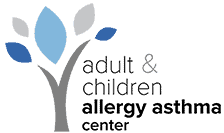- What is asthma?
- What is the cure for asthma?
- How is asthma treated?
- Can adults develop asthma?
- Do you suffer from asthma?
One out of every 13 people in the United States struggles to breathe due to asthma, a disease that causes a swelling of the bronchial airways. The disease affects both children and adults, and it can be mild or even deadly, depending on the body’s response. In fact, every day in the United States 10 people die from asthma.
If millions of people have asthma, does this mean it can’t be cured? What treatments are available to help chronic asthma sufferers? Could an adult develop symptoms later in life? We have answers that will help you understand, control, and fight back against this disease.
What Is Asthma?
An asthma attack causes the airways into your lungs to clog. These bronchial tubes are what allow air to flow from your nose and mouth and into your lungs and ultimately, your blood stream. Asthma causes these critical “pipes” to swell, tighten, and fill with mucus.
Some people who have asthma experience symptoms of varying degrees almost all of the time. However, for others, their asthma only affects them after encountering an allergy trigger such as cat dander or pollen. If you have asthma, you will experience:
- Chest pain and tightness
- Coughing and wheezing attacks
- Shortness of breath
- Trouble sleeping because you can’t breathe
- Wheezing upon exhale
Asthma symptoms can flare up or worsen from certain situations. For example:
- Allergies to airborne particles from pet dander, pollen, mold, or other substances
- Exercising can trigger an asthma attack, which can be worse if you’re inhaling dry, cold air
- Occupational asthma related to dust or chemicals experienced in the workplace
If your symptoms are worsening, immediately seek treatment. It could be the sign of a life-threatening asthma attack.
What Is the Cure for Asthma?
Unfortunately, we have to live with asthma because there is no cure for the disease. You typically cannot prevent the disease either, but you can control the symptoms and live your life more comfortably.
We’re not even sure why some patients develop symptoms and some do not. We know there are a few risk factors related to developing asthma. This includes:
- Being overweight
- Having asthma in your family history
- Developing allergic conditions such as hay fever or dermatitis
- Being exposed to pollution such as exhaust fumes or other city-related air quality issues
- Encountering occupational hazards such as chemicals in a manufacturing environment
- Smoking and being exposed to secondhand smoke
Once you’ve experienced these environmental or genetic issues, and you’ve been diagnosed as asthmatic, the next step is to see your doctor and create an individualized step-by-step treatment plan to manage the disease.

How Is Asthma Treated?
Asthma is treated with a prevention model to control your symptoms. It’s important to follow your treatment plan, which could include medicine and lifestyle changes to avoid triggers and improve your health.
Inhalers are one of the most common treatments to relieve asthma symptoms. Inhalers are small handheld manual devices that, when squeezed, deliver a concentrated puff of medicine directly into your throat and the bronchial airways. There are two types of inhalers: Preventer and Reliever.
Preventer inhalers are used every day to reduce inflammation and airway sensitivity, even if you don’t have asthma symptoms.
Reliever inhalers treat symptoms immediately when they occur.
You could use both types of inhalers, depending on your treatment plan. If you’re using your reliever inhaler three or more times a week, you may benefit from the preventer inhaler. Doctors usually combine these two into one inhaler to help you control symptoms long-term and provide immediate relief.
There are also a number of medications now that can be taken regularly to keep asthma under control. These could include:
- Biologics (immunomodulators) for severe asthma that are injected once or twice a month to reduce your allergy sensitivity
- Inhaled corticosteroids such as fluticasone (Flovent HFA) or budesonide (Pulmicort Flexhaler)
- Oral medications such as leukotriene modifiers (Singulair or Accolate) or theophylline (Theo-24) to relax the airway muscles
Quick relief medications can be taken with an inhaler or in a pill form. The goal with these medications is to provide some immediate relief when your airways are highly inflamed.
Other Ways to Treat Asthma
Your doctor may also prescribe allergy shots to reduce your immune system response to specific triggers of your asthma.
There are even a few things you can do to lessen your risk of exposure to the triggers that cause your asthma flare ups. For example, you could:
- Cut down on pet dander by having your furry friends groomed regularly
- Encase your mattress and pillows in dust proof covers and avoid down-filled products
- If it’s cold out, cover your mouth to prevent cold dry air from causing your asthma to flare
- Prevent mold spores in the kitchen and bathroom by using a good cleaner—but make sure the chemicals in the cleaner don’t trigger an asthma attack
- Replace your carpets with hardwood floors and keep them very clean
- Turn on your air conditioner when the pollen count from flowers, weeds, grasses, and trees are high
- Use a humidifier to add moisture to dry air, or a dehumidifier if you live in a damp climate
You should also generally do your best to stay healthy. Just because you have asthma doesn’t mean you can’t exercise. There are also indicators that asthma worsens if the patient suffers from obesity. Regular physical activity can strengthen your heart and lungs, which helps with asthma. It can also help you maintain healthy weight and boosts your immune system.
Finally, if you have gastroesophageal reflux disease (GERD), more commonly known as heartburn, make sure you’re treating that, as well. GERD can damage the lung airways and make your asthma worse.

Can Adults Develop Asthma?
Yes, adults can develop asthma. The disease can appear at any time in your life, whether you are five, 15, 50, or even older. Nearly eight percent of American adults suffer from the disease. One in six of these cases are triggered by exposure to occupational hazards. Allergies trigger at least 30 percent of adult onset asthma cases. Common allergens include:
- Certain chemicals
- Cigarette smoke
- Dust
- Mold
- Pollen
Adults are also more prone to having a life-threatening event with their asthma symptoms. In 2019, 3,524 adults died from asthma symptoms.
Do You Suffer from Asthma?
If you’re struggling with asthma symptoms, you don’t have to. Kevin Farnam, M.D., board-certified allergist and his expert team at the at the Adult and Children Allergy Asthma Center are standing by to help you control your symptoms and live a healthier and more active life. Schedule your first visit by contacting us online and get your life back.
